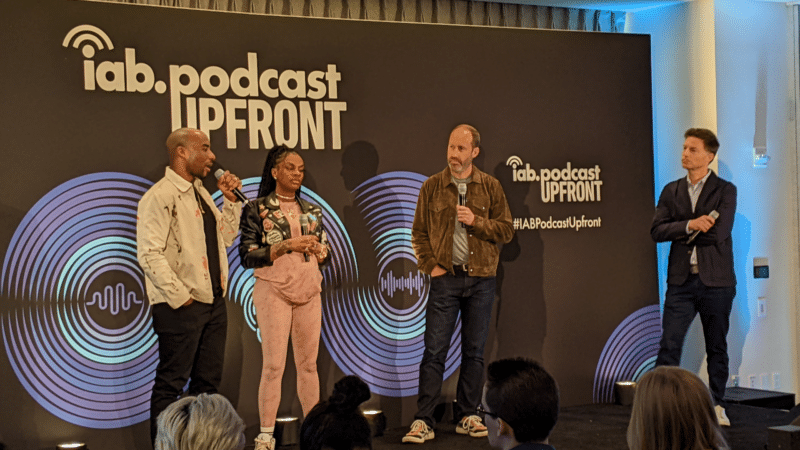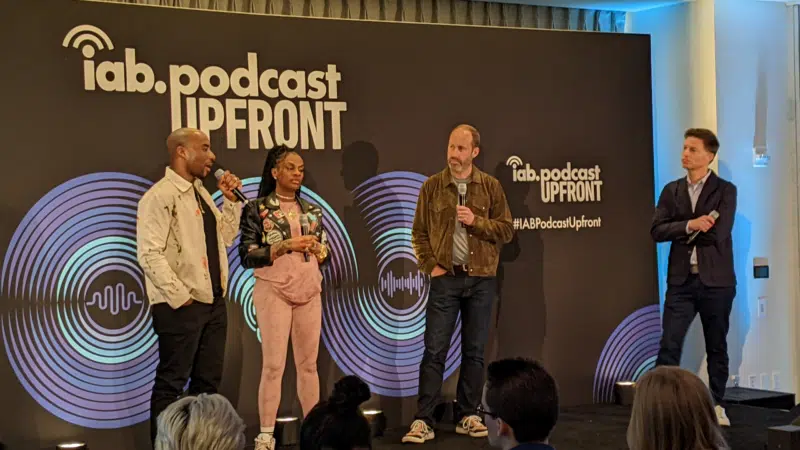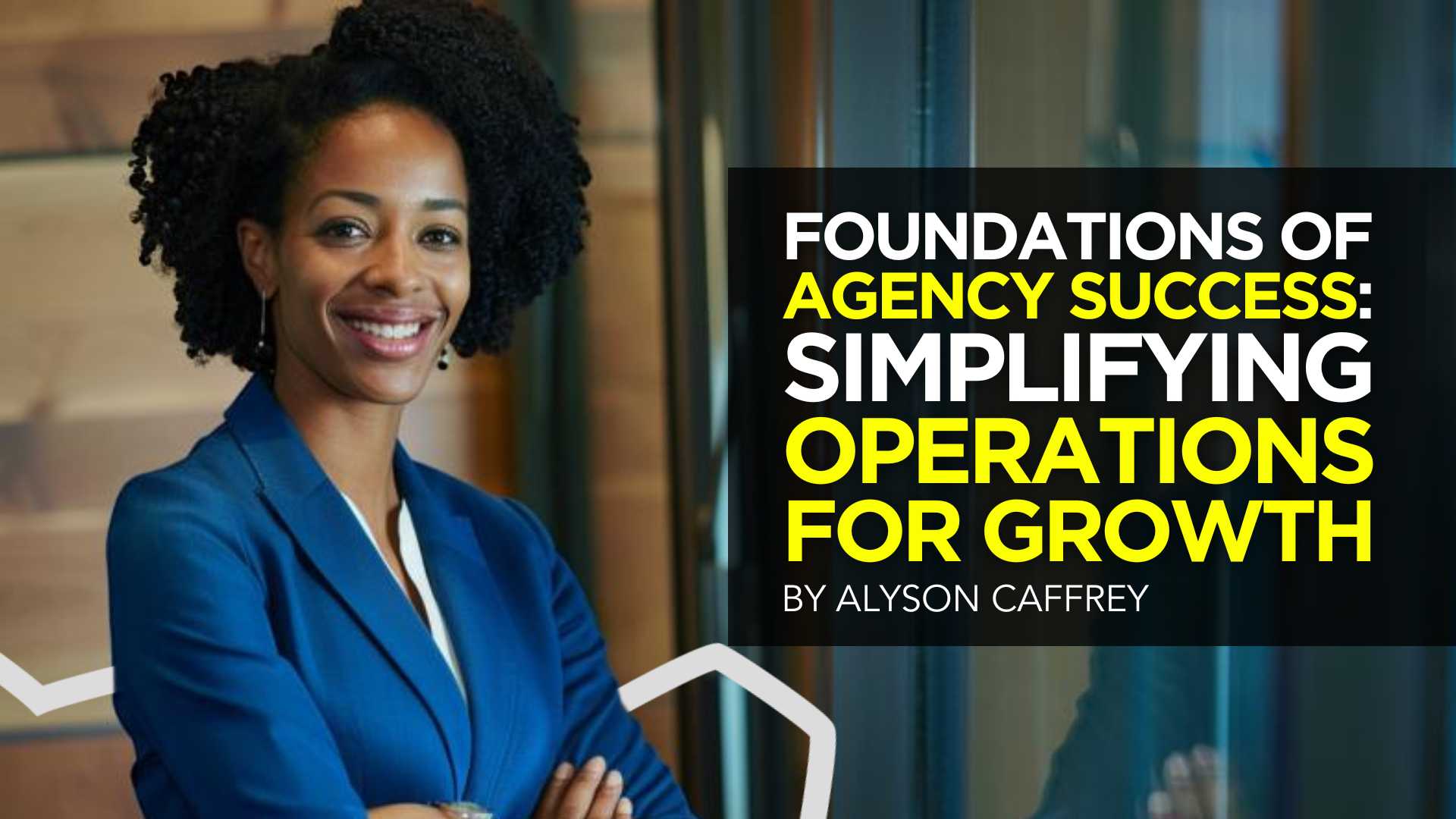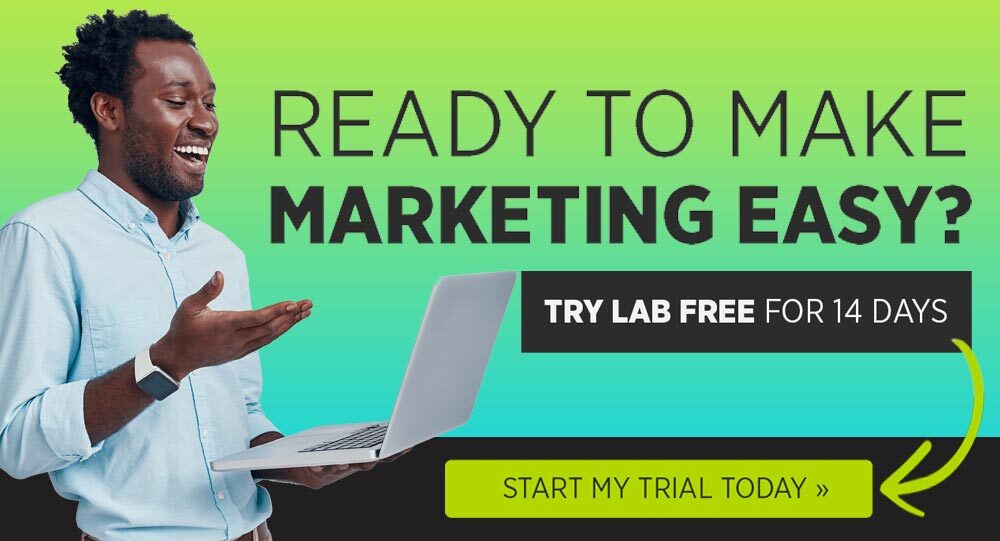MARKETING
How to Be an Amazing Mentor in 10 Ways, according to HubSpot Managers

Take a minute to think about the best mentor you’ve ever had. It could be your manager, a colleague, a parent, a friend, a coach, a college professor.
Then, you reach a point in your life where you have the chance to do the same for someone else. It can be both exciting, and a little confusing.
In this article, you’ll get tips from both mentors and mentees on what it takes to foster this successful relationship.
What is a mentor?
A mentor is a trusted, seasoned advisor who supports and guides someone through their personal and/or professional journey. They do so by getting to know their mentee, providing resources tailored to their specific needs, and brainstorming solutions to challenges.
What does it mean to be a mentor?
At its core, being a mentor is being a trusted advisor. It all boils down to making yourself available to support and advise someone when they need it, delivering that support in a way that makes sense to them, and always keeping that person’s best interests in mind.
So, what value does a mentor bring? It depends on who you ask.
For Vrnda LeValley, customer training manager at HubSpot, it’s a shift in perspective.
“My mentor provides a perspective that isn’t riddled with the same self-doubt and stereotype sensitivities that I desperately want to avoid and handicap me,” she says, “and a broader view of the implications of action versus inaction because they have a better vantage point from their upstream position within the company.”
She adds that her mentor has been able to step in and correct narratives that muddy her ability to make the most strategic decisions.
For Legal Specialist at HubSpot Jason Perry, one of the benefits of mentorship is the opportunity to extend your network.
“I most value the trust and confidence they extend to me by granting me access and recommending me to their broader networks,” he said.
Beyond that, there’s a certain freedom that comes with having a mentor.
“I think it allows for an open space to be vulnerable with someone who is more senior in their career but does not have direct control over your career growth,” said Chloe Washington, chief of staff to the CMO at HubSpot. “You can be more transparent and ask questions you may not feel comfortable asking your manager or another co-worker.”
With that said, the mentorship doesn’t just benefit the mentee, it’s a two-sided relationship.
“I am constantly inspired by what my mentees are doing, their ambition, and their goals,” Washington said. “It motivates me as I continue along my career journey. It also allows me to form relationships with people that I may have not otherwise been able to speak with as much or as often.”
10 Ways to Be an Amazing Mentor
- Understand what you want out of the relationship.
- Set expectations together in the very beginning.
- Take a genuine interest in your mentee as a person.
- Build trust.
- Know when to give advice.
- Don’t assume anything about your mentee – ask.
- Share your journey.
- Celebrate their achievements.
- Seek out resources to help your mentee grow.
- Be sure you have the bandwidth.
1. Understand what you want out of the relationship.
As we’ve mentioned, mentorship isn’t a one-way relationship. This means that just like the mentee, you should know the type of relationship you’re seeking and what you want to gain.
Charlene Strain, marketing manager at HubSpot, serves as a mentor and suggests asking yourself these questions to get started:
- Do you view it as a two-way street, player-coach relationship where you learn from them as much as they learn from you or something else?
- How can you sharpen your area of expertise?
- Do they have connections or gaps of knowledge for you as well?
- How does taking on a mentorship role strengthen you as a leader in your personal and professional life?
Knowing these answers will help you frame your mentorship strategy and start with clear intentions.
2. Set expectations together in the very beginning.
Once you know what you want out of the relationship as a mentor, setting expectations is the next natural step.
Every mentor-mentee relationship is unique. So, when you first start out, discuss expectations with your mentee and determine if you’re ready for that commitment.
“Everyone works and receives feedback differently, so it’s important to understand if the relationship is a fit for both parties [based] on what they’re looking for,” said Strain.
Here’s what Strain recommends discussing:
- Is there a time limit on when the mentorship ends?
- How often should you meet, and why?
- What resources can the mentor provide for the mentee to do some work on their own?
- What metrics are being used to measure success?
- How hands-on should the mentor be?
You should come to these answers as a duo and it’s OK if it takes a little bit to figure it out. The time you put in at the beginning will pay off in the long term.
Some expectations are pretty straightforward, Perry says: professionalism, punctuality, clear communication, and organization. However, some expectations will be shaped by the mentee.
“A mentee should be able to tell me as the mentor exactly what they’d like me to do for them, whether it ‘s to provide information, make an introduction, write a recommendation or provide advice,” says Perry. “The relationship is theirs to shape and build and that starts with a clear, direct ask of some sort.”
When Washington works with mentees, her first session focuses on goal setting, setting up a meeting cadence, and discussing ground rules.
“For example, if there is a big topic to discuss, I request that they give me a heads up a few days before so that I can come fully prepared to discuss my point of view and not waste their time formulating my thoughts on the fly,” she said.
From there, she creates a running agenda doc to keep track of notes and have a place they can refer back to once the mentorship ends.
3. Take a genuine interest in your mentee as a person.
A mentor/mentee relationship is a very personal one.
You can give mediocre advice without really knowing a person, but to stand out as an amazing mentor, you’re really going to have to get to know your mentee on a personal level.
You probably have some of the more career-oriented questions down: what their working style is, their dream job, goals for their current job, and so on and so forth. But what about the stuff that makes them … them?
Getting to know your mentee on a deeper level will help you build a strong relationship, and it’ll also help you understand who they are as a person and how they interact with others, and so on.
One great way to get to know someone? Become an active listener. This is easier said than done: It means making a conscious effort to really, truly pay attention to what your mentee is saying, instead of thinking about what you’re going to say next.
“Two traits that are helpful for someone to be a successful mentor are good listening skills and the ability to connect like-minded people,” said Strain. “Our professional lives are not in a silo, they’re a web. So, anyway I can truly listen to a mentee’s goals, their journey, and where they see themselves will help me connect them with other people or businesses with the same mission.”
You might worry that you need to come up with something helpful right away, when in fact, the best thing you can do for your mentee is to listen closely to what they’re saying, ask open questions to dig deeper and act as a sounding board.
4. Build trust.
In the last section, we stressed the vulnerability that comes with mentorship. To continue fostering a safe environment in which your mentee can share their concerns and challenges, you need to build trust.
That can happen in a few different ways. For Solutions Engineer at HubSpot Jeremy Sagaille, it’s transparency.
“I feel like I can really be myself in front of my mentor and I don’t feel like I have to do the typical corporate political BS,” he said, “which is something that I’ve definitely had to tiptoe through in the past and haven’t done well with.”
For LeValley, it’s the ability to see beyond the circumstance to assess the core issues, challenges, and opportunities.
“Those can get cloudy when you are on the road to a destination you have never visited before,” she says. “It makes all the difference when avoiding pitfalls and finding solid shortcuts.”
She adds that truth-telling is another valuable trait in a mentor.
“Many people haven’t been given the hard messages required for growth, due to lack of investment or lack of courage from those around them,” she says. “Personally, the best thing my mentor told me was to check in with my growth mindset and read a book. Not what I wanted to hear but it was 100% what I needed to hear.”
Once you build trust with your mentee, your relationship will be able to go that much deeper.
5. Know when to give advice.
When you’re mentoring someone, you might feel pressured to give them advice straight away. But not all feedback is helpful feedback, and knowing the difference is key.
A good mentor knows when to hit ‘pause’ during a conversation, says Rebecca Corliss, former director of marketing at HubSpot.
“If you don’t have the right information, experience, or emotional state to react to a scenario properly, hit ‘pause,” she said. “That will give you a chance to get more information, talk to your resources, and come back with a clear and valuable response.”
Here’s what that might look like in a real conversation.
“Thanks for sharing this with me. I’m going to take some time and give this some serious thought before we continue. It’s important to me that I’m giving you the best possible solution. Why don’t we continue talking about it [tomorrow/next week/next time we meet]? I’ll book some time.”
6. Don’t assume anything about your mentee – ask.
Biases cloud our judgment whether we realize it or not. While we can work to uncover and dismantle them, some are so ingrained that they peak out without us realizing it.
To combat this issue with your mentee, breakthrough common assumptions by asking questions and digging deeper. This is especially important if you’re mentoring someone who’s in the early stages of their career
Say you’re mentoring someone who’s having trouble getting through to their manager. Instead of launching into a story about a time you had communication issues with a manager of yours, spend time asking questions that draw out the important details of their problem.
“Your job is to facilitate advancement and movement, not just chat,” says LeValley. “Your words can change their lives so you must choose them carefully.”
Only once you’ve gotten an honest background on a problem can you share helpful, relevant feedback – without making decisions for your mentee.
7. Share your journey.
Being open to sharing your own mistakes and failures is one of the best gifts a mentor can give.
Not only is it helpful information for problem-solving purposes, but it also builds trust and strengthens the relationship.
“Junior employees don’t always feel comfortable owning up to a mistake or admitting that they’re struggling in a certain area,” says former Managing Director at HubSpot Emma Brudner. “If you cop to your failures and struggles, you make it OK for them to chime in and help them share with you.”
Sagaille says that before his mentor, he often thought the struggles he faced were unique. However, he was reassured by his mentor, who had experience in his exact role.
“I’m just excited that I have a window into the future a little bit because she’s dealt with similar issues and she’s had some setbacks because of those issues,” he says, “so, she’s able to steer me in the direction so I can avoid those pitfalls.”
Leslie Ye, content designer at HubSpot, suggests reflecting on the roadblocks you faced when you were in your mentee’s stage in life or career.
“Hearing how someone else approached a challenge is always helpful for someone going through it for the first time,” she says. “Even if you don’t solve problems the same way as your mentee, it’s always useful to hear multiple perspectives.”
Perry echoes this sentiment.
“Take time to tap into your own story,” he says, “Especially for Black mentors, it’s important to relate and establish an interpersonal bond that fosters real talk – be a true resource in all facets.”
He adds that adversity of any kind our response to them is a foundational way to create relatability. Strain agrees, pointing to her non-traditional tech background before transitioning to the B2B Saas space.
“I’m extremely transparent about my own journey with a mentee. As I climb up the ladder as a Black woman in tech, it’s important for me to continue reaching back down and helping others up as well,” she says. “If it wasn’t for some of my own incredible mentors throughout my career, I wouldn’t be a mentor now as well.”
8. Celebrate their achievements.
Because people often look for or call upon a mentor to help them with tough situations, many mentorship conversations revolve around the stressful stuff.
When you take the time to highlight and even celebrate your mentee’s successes and achievements, you’re also building your mentee’s confidence and keeping them motivated.
“I’ve worked in a lot of places in the past that were very reserved with positive feedback and very lavish with constructive or negative feedback,” said Sagaille. “So I think that’s something my mentor does really, really well – it’s a nice balance.”
Some mentees also seek approval from their mentors. Acknowledging their success is a way to satisfy that psychological need for recognition.
If you’re wondering how to celebrate their achievements, consider asking them what their love languages are. Those aren’t just helpful for personal relationships, they also work for professional ones as well.
For instance, you may want to congratulate your mentee on a win by sending them a gift. However, if they value words of affirmation more, that’s the better way to go.
9. Seek out resources to help your mentee grow.
Great mentors look for situations – and some even create situations – to help their mentees get closer to their goals.
It can be anything from connecting them with someone with experience in their dream job to recommending a conference they might be interested in. Take note of the areas in which your mentee wants to grow, and always be looking for opportunities to point them in the right direction.
If you work at the same company as your mentee and have some involvement in their experience, Corliss suggests introducing new projects to them over time as a way to build a strong foundation.
“First, start with something that gives context. This could be something that requires research and is genuinely valuable,” she says. “Then, handoff something small that you normally do for your intern or mentee to own. This will help your mentee learn how to develop ownership over something, including how to execute and reach a goal on his or her own. Then, build upon that foundation.”
10. Be sure you have the bandwidth.
LeValley believes mentorship is best when it’s approached as a calling instead of a task. With that in mind, it’s important to consider if you have the bandwidth to take it on.
“Be honest with yourself about what extent you are willing to give of your time and expertise,” Strain says. “This will help you manage your own workload and personal life easier without guilt or stretching yourself too thin.”
Washington echoes this sentiment and adds that it’s OK to bow out if you realize you don’t have the bandwidth.
“The relationship needs to be mutually beneficial and if you feel like you would be burdened by taking on the relationship, then be respectful to your prospective mentee and tell them that you’re not able to take on the relationship,” she says. “It’s better to be upfront than to waste anyone’s time.”
At the end of the day, being a great mentor takes practice and patience. The more you work with a given mentee, the more you’ll learn a lot about them: their communication style, how they process feedback, how they go about pursuing their goals.
The best part? It will likely be as rewarding an experience for you as it will be for your mentees.
Editor’s Note: This post was originally published in Jan. 2016 and has been updated for comprehensiveness.
Source link
MARKETING
18 Events and Conferences for Black Entrepreneurs in 2024

Welcome to Breaking the Blueprint — a blog series that dives into the unique business challenges and opportunities of underrepresented business owners and entrepreneurs. Learn how they’ve grown or scaled their businesses, explored entrepreneurial ventures within their companies, or created side hustles, and how their stories can inspire and inform your own success.
It can feel isolating if you’re the only one in the room who looks like you.
MARKETING
IAB Podcast Upfront highlights rebounding audiences and increased innovation


Podcasts are bouncing back from last year’s slowdown with digital audio publishers, tech partners and brands innovating to build deep relationships with listeners.
At the IAB Podcast Upfront in New York this week, hit shows and successful brand placements were lauded. In addition to the excitement generated by stars like Jon Stewart and Charlamagne tha God, the numbers gauging the industry also showed promise.
U.S. podcast revenue is expected to grow 12% to reach $2 billion — up from 5% growth last year — according to a new IAB/PwC study. Podcasts are projected to reach $2.6 billion by 2026.
The growth is fueled by engaging content and the ability to measure its impact. Adtech is stepping in to measure, prove return on spend and manage brand safety in gripping, sometimes contentious, environments.
“As audio continues to evolve and gain traction, you can expect to hear new innovations around data, measurement, attribution and, crucially, about the ability to assess podcasting’s contribution to KPIs in comparison to other channels in the media mix,” said IAB CEO David Cohen, in his opening remarks.
Comedy and sports leading the way
Podcasting’s slowed growth in 2023 was indicative of lower ad budgets overall as advertisers braced for economic headwinds, according to Matt Shapo, director, Media Center for IAB, in his keynote. The drought is largely over. Data from media analytics firm Guideline found podcast gross media spend up 21.7% in Q1 2024 over Q1 2023. Monthly U.S. podcast listeners now number 135 million, averaging 8.3 podcast episodes per week, according to Edison Research.
Comedy overtook sports and news to become the top podcast category, according to the new IAB report, “U.S. Podcast Advertising Revenue Study: 2023 Revenue & 2024-2026 Growth Projects.” Comedy podcasts gained nearly 300 new advertisers in Q4 2023.
Sports defended second place among popular genres in the report. Announcements from the stage largely followed these preferences.
Jon Stewart, who recently returned to “The Daily Show” to host Mondays, announced a new podcast, “The Weekly Show with Jon Stewart,” via video message at the Upfront. The podcast will start next month and is part of Paramount Audio’s roster, which has a strong sports lineup thanks to its association with CBS Sports.
Reaching underserved groups and tastes
IHeartMedia toasted its partnership with radio and TV host Charlamagne tha God. Charlamagne’s The Black Effect is the largest podcast network in the U.S. for and by black creators. Comedian Jess Hilarious spoke about becoming the newest co-host of the long-running “The Breakfast Club” earlier this year, and doing it while pregnant.
The company also announced a new partnership with Hello Sunshine, a media company founded by Oscar-winner Reese Witherspoon. One resulting podcast, “The Bright Side,” is hosted by journalists Danielle Robay and Simone Boyce. The inspiration for the show was to tell positive stories as a counterweight to negativity in the culture.
With such a large population listening to podcasts, advertisers can now benefit from reaching specific groups catered to by fine-tuned creators and topics. As the top U.S. audio network, iHeartMedia touted its reach of 276 million broadcast listeners.
Connecting advertisers with the right audience
Through its acquisition of technology, including audio adtech company Triton Digital in 2021, as well as data partnerships, iHeartMedia claims a targetable audience of 34 million podcast listeners through its podcast network, and a broader audio audience of 226 million for advertisers, using first- and third-party data.
“A more diverse audience is tuning in, creating more opportunities for more genres to reach consumers — from true crime to business to history to science and culture, there is content for everyone,” Cohen said.
The IAB study found that the top individual advertiser categories in 2023 were Arts, Entertainment and Media (14%), Financial Services (13%), CPG (12%) and Retail (11%). The largest segment of advertisers was Other (27%), which means many podcast advertisers have distinct products and services and are looking to connect with similarly personalized content.
Acast, the top global podcast network, founded in Stockholm a decade ago, boasts 125,000 shows and 400 million monthly listeners. The company acquired podcast database Podchaser in 2022 to gain insights on 4.5 million podcasts (at the time) with over 1.7 billion data points.
Measurement and brand safety
Technology is catching up to the sheer volume of content in the digital audio space. Measurement company Adelaide developed its standard unit of attention, the AU, to predict how effective ad placements will be in an “apples to apples” way across channels. This method is used by The Coca-Cola Company, NBA and AB InBev, among other big advertisers.
In a study with National Public Media, which includes NPR radio and popular podcasts like the “Tiny Desk” concert series, Adelaide found that NPR, on average, scored 10% higher than Adelaide’s Podcast AU Benchmarks, correlating to full-funnel outcomes. NPR listeners weren’t just clicking through to advertisers’ sites, they were considering making a purchase.
Advertisers can also get deep insights on ad effectiveness through Wondery’s premium podcasts — the company was acquired by Amazon in 2020. Ads on its podcasts can now be managed through the Amazon DSP, and measurement of purchases resulting from ads will soon be available.
The podcast landscape is growing rapidly, and advertisers are understandably concerned about involving their brands with potentially controversial content. AI company Seekr develops large language models (LLMs) to analyze online content, including the context around what’s being said on a podcast. It offers a civility rating that determines if a podcast mentioning “shootings,” for instance, is speaking responsibly and civilly about the topic. In doing so, Seekr adds a layer of confidence for advertisers who would otherwise pass over an opportunity to reach an engaged audience on a topic that means a lot to them. Seekr recently partnered with ad agency Oxford Road to bring more confidence to clients.
“When we move beyond the top 100 podcasts, it becomes infinitely more challenging for these long tails of podcasts to be discovered and monetized,” said Pat LaCroix, EVP, strategic partnerships at Seekr. “Media has a trust problem. We’re living in a time of content fragmentation, political polarization and misinformation. This is all leading to a complex and challenging environment for brands to navigate, especially in a channel where brand safety tools have been in the infancy stage.”
Dig deeper: 10 top marketing podcasts for 2024
MARKETING
Foundations of Agency Success: Simplifying Operations for Growth


Why do we read books like Traction, Scaling Up, and the E-Myth and still struggle with implementing systems, defining processes, and training people in our agency?
Those are incredibly comprehensive methodologies. And yet digital agencies still suffer from feast or famine months, inconsistent results and timelines on projects, quality control, revisions, and much more. It’s not because they aren’t excellent at what they do. I
t’s not because there isn’t value in their service. It’s often because they haven’t defined the three most important elements of delivery: the how, the when, and the why.
Complicating our operations early on can lead to a ton of failure in implementing them. Business owners overcomplicate their own processes, hesitate to write things down, and then there’s a ton of operational drag in the company.
Couple that with split attention and paper-thin resources and you have yourself an agency that spends most of its time putting out fires, reacting to problems with clients, and generally building a culture of “the Founder/Creative Director/Leader will fix it” mentality.
Before we chat through how truly simple this can all be, let’s first go back to the beginning.
When we start our companies, we’re told to hustle. And hustle hard. We’re coached that it takes a ton of effort to create momentum, close deals, hire people, and manage projects. And that is all true. There is a ton of work that goes into getting a business up and running.


The challenge is that we all adopt this habit of burning the candle at both ends and the middle all for the sake of growing the business. And we bring that habit into the next stage of growth when our business needs… you guessed it… exactly the opposite.
In Mike Michalowitz’s book, Profit First he opens by insisting the reader understand and accept a fundamental truth: our business is a cash-eating monster. The truth is, our business is also a time-eating monster. And it’s only when we realize that as long as we keep feeding it our time and our resources, it’ll gobble everything up leaving you with nothing in your pocket and a ton of confusion around why you can’t grow.
Truth is, financial problems are easy compared to operational problems. Money is everywhere. You can go get a loan or go create more revenue by providing value easily. What’s harder is taking that money and creating systems that produce profitably. Next level is taking that money, creating profit and time freedom.
In my bestselling book, The Sabbatical Method, I teach owners how to fundamentally peel back the time they spend in their company, doing everything, and how it can save owners a lot of money, time, and headaches by professionalizing their operations.
The tough part about being a digital agency owner is that you likely started your business because you were great at something. Building websites, creating Search Engine Optimization strategies, or running paid media campaigns. And then you ended up running a company. Those are two very different things.


How to Get Out of Your Own Way and Create Some Simple Structure for Your Agency…
- Start Working Less
I know this sounds really brash and counterintuitive, but I’ve seen it work wonders for clients and colleagues alike. I often say you can’t see the label from inside the bottle and I’ve found no truer statement when it comes to things like planning, vision, direction, and operations creation.
Owners who stay in the weeds of their business while trying to build the structure are like hunters in the jungle hacking through the brush with a machete, getting nowhere with really sore arms. Instead, define your work day, create those boundaries of involvement, stop working weekends, nights and jumping over people’s heads to solve problems.
It’ll help you get another vantage point on your company and your team can build some autonomy in the meantime.
- Master the Art of Knowledge Transfer
There are two ways to impart knowledge on others: apprenticeship and writing something down. Apprenticeship began as a lifelong relationship and often knowledge was only retained by ONE person who would carry on your method.
Writing things down used to be limited (before the printing press) to whoever held the pages.
We’re fortunate that today, we have many ways of imparting knowledge to our team. And creating this habit early on can save a business from being dependent on any one person who has a bunch of “how” and “when” up in their noggin.
While you’re taking some time to get out of the day-to-day, start writing things down and recording your screen (use a tool like loom.com) while you’re answering questions.


Deposit those teachings into a company knowledge base, a central location for company resources. Some of the most scaleable and sellable companies I’ve ever worked with had this habit down pat.
- Define Your Processes
Lean in. No fancy tool or software is going to save your company. Every team I’ve ever worked with who came to me with a half-built project management tool suffered immensely from not first defining their process. This isn’t easy to do, but it can be simple.
The thing that hangs up most teams to dry is simply making decisions. If you can decide how you do something, when you do it and why it’s happening that way, you’ve already won. I know exactly what you’re thinking: our process changes all the time, per client, per engagement, etc. That’s fine.
Small businesses should be finding better, more efficient ways to do things all the time. Developing your processes and creating a maintenance effort to keep them accurate and updated is going to be a liferaft in choppy seas. You’ll be able to cling to it when the agency gets busy.
“I’m so busy, how can I possibly work less and make time for this?”


You can’t afford not to do this work. Burning the candle at both ends and the middle will catch up eventually and in some form or another. Whether it’s burnout, clients churning out of the company, a team member leaving, some huge, unexpected tax bill.
I’ve heard all the stories and they all suck. It’s easier than ever to start a business and it’s harder than ever to keep one. This work might not be sexy, but it gives us the freedom we craved when we began our companies.
Start small and simple and watch your company become more predictable and your team more efficient.
-

 PPC6 days ago
PPC6 days agoHow the TikTok Algorithm Works in 2024 (+9 Ways to Go Viral)
-

 SEO5 days ago
SEO5 days agoHow to Use Keywords for SEO: The Complete Beginner’s Guide
-

 SEO7 days ago
SEO7 days agoBlog Post Checklist: Check All Prior to Hitting “Publish”
-

 MARKETING6 days ago
MARKETING6 days agoHow To Protect Your People and Brand
-

 PPC7 days ago
PPC7 days agoHow to Brainstorm Business Ideas: 9 Fool-Proof Approaches
-

 MARKETING7 days ago
MARKETING7 days agoElevating Women in SEO for a More Inclusive Industry
-

 MARKETING3 days ago
MARKETING3 days agoAdvertising on Hulu: Ad Formats, Examples & Tips
-

 MARKETING5 days ago
MARKETING5 days agoThe Ultimate Guide to Email Marketing
















You must be logged in to post a comment Login